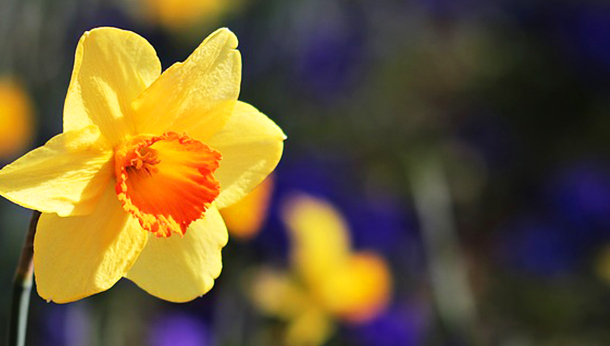Are you planning a good clear-out this spring? Got a good book to read out in the garden with the flowers and the butterflies? Perhaps you’ll roam further afield, visit your favourite picnic spot; the birds singing, the trees blossoming. Isn’t spring just fantastic?
Whatever you’re up to at this beautiful time of year, here’s what to be mindful of when it comes to the wellbeing of your pets.
The Garden:
Sadly, our mammalian friends won’t be the only creatures bouncing about with excitement this spring. Be wary of buzzing insects as allergic reactions vary in pets, just like they do in humans. Avoid leaving your pet unsupervised in the garden for long periods of time and if you notice they’ve been stung, contact your vet.
Plants such as azalea, rhododendron, sago palm, lilies and daffodils can be poisonous to dogs, cats, rabbits and guinea pigs. See here for a full list of what to look out for and how to prevent your pet from being poisoned.

Your cat might roam, your rabbit might graze, your dog might dig. No matter which pet you have, ensuring your lawn is well-kept will improve their wellbeing. Be mindful of rocks, stones, gravel or dry patches of soil. When using lawn feeders of fertilizers, be sure you read the labels carefully and adhere to instructions; don’t let your pet out into the garden until the effects of all chemicals have worn off. Avoid feeding lawnmower clippings to your rabbit or guinea pig – be it natural or man-made, anything could be mixed up in there!
Though we’re never in too much danger of this in the UK, be careful when the weather is extremely hot. This will put pets, especially rabbits and guinea pigs, at risk of heatstroke or dehydration. Always make sure your pet has access to shade and ample clean drinking water. Perhaps bring them indoors during the mid-afternoon when the sun is highest.
The House:
You might not think the inside of your house poses the same amount of threats and to be fair, it probably doesn’t. That said, you can never be too careful.
When bringing your pet back indoors after a picturesque afternoon in the garden, be sure to wash and dry their appropriate body parts. It’s far from unheard of for a dog to catch fleas outside and bring them indoors, causing an infestation.
If you’re doing a spring clean, think carefully about what you leave lying around – and where you leave it. If you’re cleaning out the top drawer of your bedside table, for example, keep an eye on lotions, medications (ibuprofen in particular) and perfumes/sprays at all times. Keep trip hazards to a minimum, anything your pet could climb on or into or anything you yourself could trip over and cause harm accidentally.
As with the garden, keep harmful cleaning products well away from your pets. Bleach, paint, paint stripper and plughole un-blockers are all bad news. When using these kinds of products, it’s best to keep your pet in another, danger-free room. Make sure the room is well ventilated when you let them back in.
After a long day of cleaning and having fun with your pets, treat yourself. Relax! If you treat yourself to chocolate, grapes or raisins however, be sure they stay well out of your pets’ reach!
Heading Out:
Make sure your pet is up to date with all relevant vaccinations and parasite prevention treatments. Ticks thrive in the warmer months so be on the lookout and check your pet’s fur regularly. If you find one, remove it as soon as you can. We recommend a specialist tick remover or tick hook; grab the tick by the head as firmly as possible – without nipping your pet’s skin – and remove it in a swift, rotating motion. Be wary of tweezers as they often don’t remove the tick in full. If you’re struggling or don’t feel comfortable, visit the vet right away.

If you haven’t already, get your pet microchipped. In 2016, microchipping a pet dog became a legal requirement. Veterinary professionals recommend microchipping cats too – the process is quick, painless and dramatically increases your chance of finding your pet if they wander off a little too far.
No-one knows your pet like you do, but we all know they’re full of surprises! In public places, you might see rabbits, squirrels, birds or other people’s pets. Stay alert at all times; if your dog gets too excited, consider popping them back on their lead for a little while.
Ensure your cat has access to food in small doses but at regular times throughout the day – hungry cats are more likely to get lost chasing mice or birds.
As always, if anything doesn’t seem right, contact your vet. We hope you and your pets enjoy the run-up to summer and if you can think of any other helpful spring tips, don’t hesitate to get in touch!